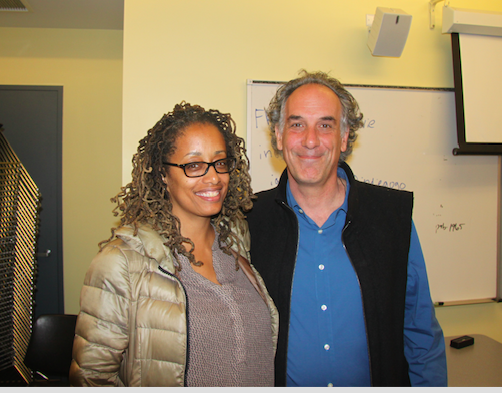Powerful anti-trafficking film engages Urban community

“Globally the average age of a trafficked girl is thirteen,” reads a description of the 2014 narrative feature film, “SOLD.” Adapted from Patricia McCormick’s novel originally published in 2006, the film chronicles the life of Lakshmi, a young girl who must leave her village in Nepal to work in Happiness House, a brothel in Kokata, India.
McCormick’s novel, based on true stories, has already been translated into 32 languages and incorporated into some school’s curriculum. Needless to say, McCormick has received a great deal of global acclaim for this poetic and evocative work.
The film adds an additional dimension to this near inconceivable reality by turning McCormick’s stories into evocative images. By bringing to light the “brutality of child trafficking,” those behind the movie explain on the film’s website that they have aimed to “inspire a global movement to address this crime domestically and internationally.” The film was intentionally written with minimal dialogue so as to make subtitles and dubbing more readily accessible.
In an interview at the 2014 Asian American International Film Festival, McCormick along with “SOLD” director Jeffrey D. Brown (a former Urban parent and spouse of an Urban alum) and producer Jane Charles spoke about the seven year process of researching and creating the film. McCormick explained that in writing the novel, she believed it would be most powerful to tell the story from the girl’s point of view, which is seldom exposed otherwise. Brown, whose expertise in directing is working with kids, shared that he was moved to tears when he first read McCormick’s novel in one sitting.
In the process of creating the film, Charles found it important to show the darkness of the issue in order to seek hope and reach the light. Brown and Charles came across this darkness during the research process, in which they witnessed traumatized young girls in the three-month suicide watch phase after being rescued from brothels.
Since the release of the film in 2014, the movie crew has been partnering with various organizations and campaigns to raise awareness and money for anti-trafficking. The film has also recently been on the radar in the Urban community. On October 13, Brown, was invited to speak in an open meeting in Urban’s very own SWEAR (Students for Women’s Equality and Rights) affinity space. Brown returned to the school on Nov. 2 to speak to students after an afternoon showing of the film, hosted again by SWEAR leaders.
According to one of the film’s trailers, child trafficking exists in every country, and children have become the fastest growing product for sale in the world. Through appealing visuals and thoughtfully crafted dialogue, “SOLD” tells a touching story, exposing a wide audience to the gravity of this extremely troubling worldwide crisis.

